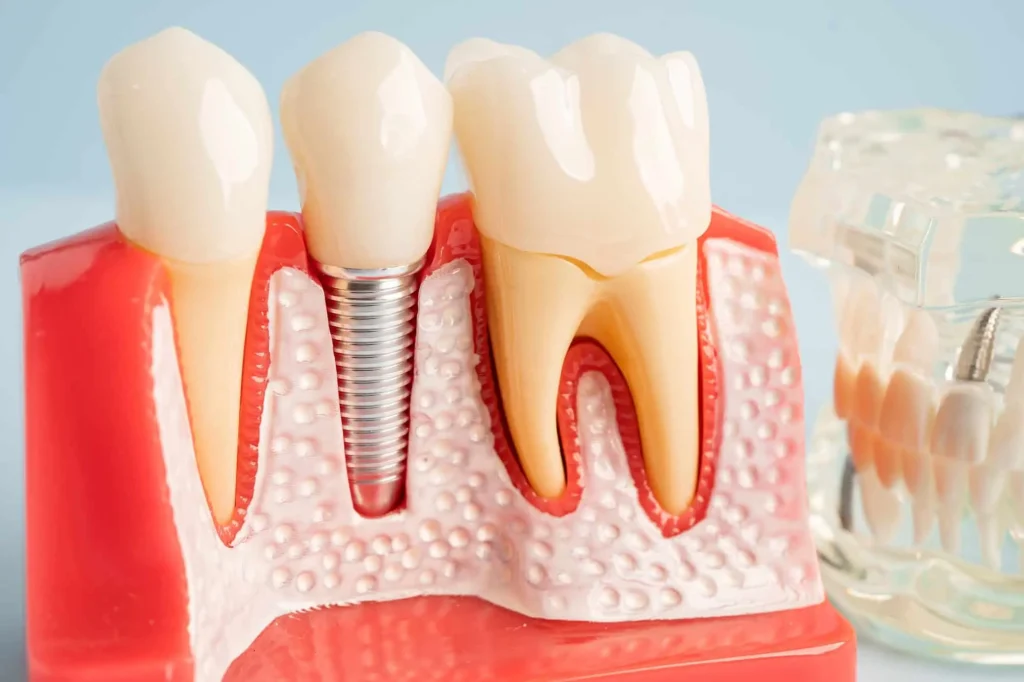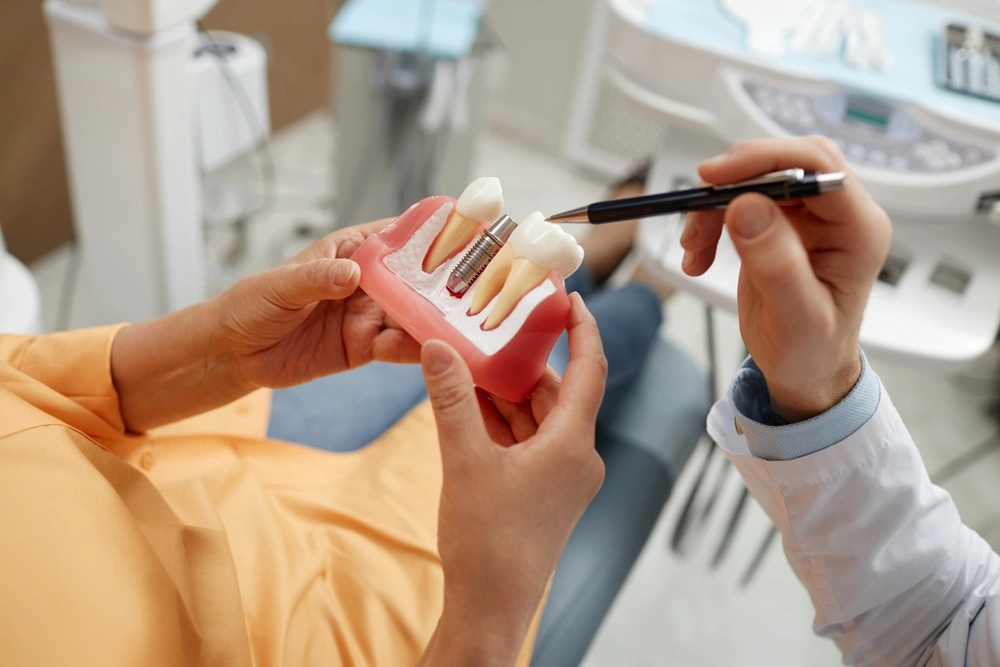03 Mar Dental Implant Failure: Causes, Signs, and Prevention Tips
Dental implants are a favored solution for replacing missing teeth, offering high durability and a natural appearance. However, like any dental procedure, they come with risks. Understanding dental implant failure can help you feel confident in your decision and stay alert to potential issues.
In this blog, we’ll explore the causes, warning signs, and how to prevent implant problems. Whether you’re considering implants or already have them, this guide will give you the knowledge you need to maintain a healthy smile. Let’s get started!

Common Causes of Implant Failure
Different factors can lead to dental implant failure. One major culprit is infection, often caused by poor oral hygiene after the procedure. If bacteria build up around the implant site, it can result in peri-implantitis, which affects the gums and bone.
Another common cause is poor bone support. If the jawbone isn’t strong enough to hold the implant securely, it may fail to integrate properly.
Warning Signs to Watch For
Sometimes, implants fail gradually, so it’s crucial to know the early warning signs, such as:
- Pain or discomfort in the implant area
- Red, swollen, or bleeding gums around the implant
- Loosening of the implant
- Difficulty chewing or biting down
If you experience these symptoms, you must visit your dentist for a check-up and proper treatment. By staying alert, you can catch these issues early and avoid more serious dental implant problems years later.
Long-Term Implant Problems
Even after successful placement, dental implant rejection or other complications can arise over time. Some patients may experience bone loss around the implant, especially if they neglect long-term care. Issues like gum recession can also expose the implant or affect its stability.
Another concern is general wear and tear. Just because implants are durable doesn’t mean they’re invincible. Biting down on hard foods or grinding your teeth can lead to problems years later. Regular check-ups and proper maintenance are key to preserving your investment.

Tips to Prevent Implant Failure
The good news is that you can avoid most dental implant problems with the right care. Follow these prevention tips to keep your implants in great shape:
Adopt healthy habits: Avoid smoking, eat a balanced diet, and protect your teeth if you grind them. Prevention is about consistency and care, making a big difference in your implant’s longevity.
Practice excellent oral hygiene: Brush and floss daily, and consider using an antibacterial mouthwash to keep the area around your implant clean.
Don’t skip dental appointments: Regular check-ups help your dentist monitor the implant’s health and surrounding tissues.
Protect Your Smile with Drs. Jin & Jin Family Dentistry
Dental implants are a great way to restore your smile and boost your confidence. That said, no one wants to deal with the stress of dental implant failure. By understanding the risks, watching for signs like pain or looseness, and taking proactive steps to care for your implants, you can enjoy a healthy smile for years.
At Drs. Jin & Jin Family Dentistry, we’re here to help. We understand your concerns and are committed to guiding you through every step of your implant care. If you’re unsure about your implant’s current condition or have questions about dental implant rejection, our team is here to support you. Book an appointment with us!
